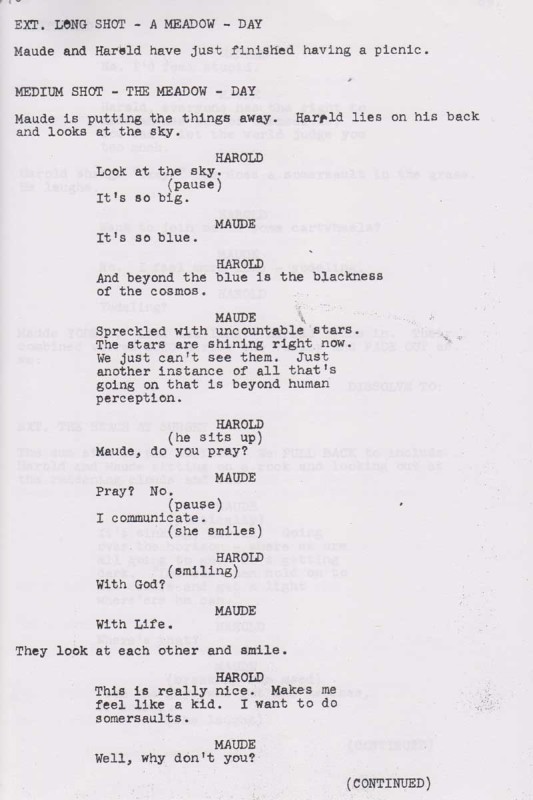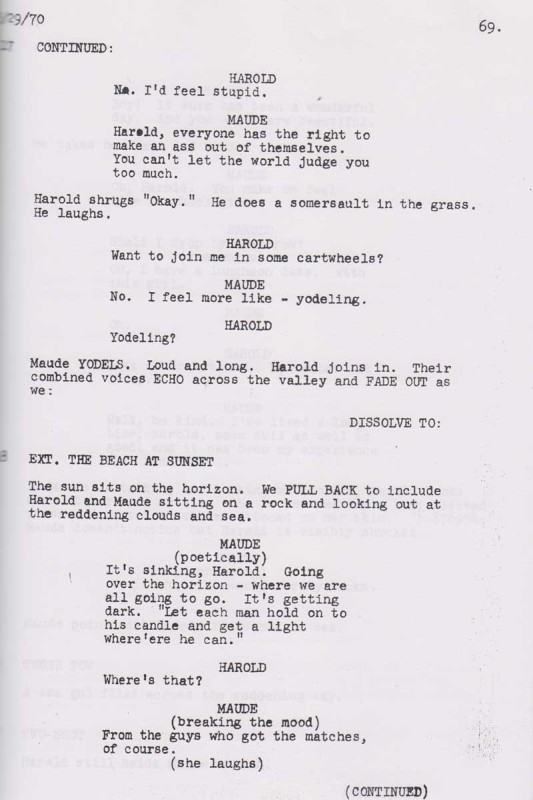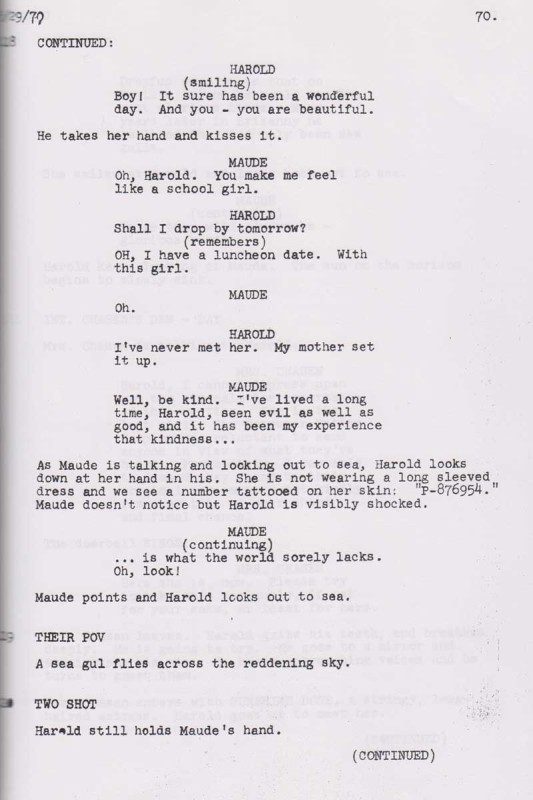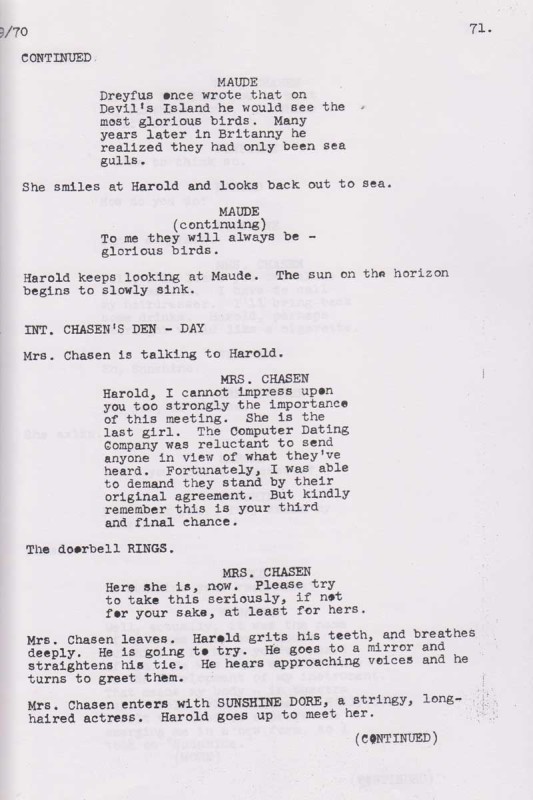SCREENPLAY 101: HAROLD AND MAUDE
Released in 1971, HAROLD AND MAUDE originated from, of all places, writer Colin Higgins’ masters thesis at UCLA. Its dark humor and unique exploration of the meaning of life are still moving and relevant, even after 40 years. Join us as we look at #86 on the WGA's 101 Greatest Screenplays.
The relationship between 20-year-old Harold and 80-year-old Maude is probably one of the most unusual romances ever seen onscreen. Harold has no direction in life, sees a therapist, attends funerals for fun, and has performed seventeen fake “suicides” by the time we meet him. Having had enough, his mother arranges dates for him throughout the film - but the only woman who catches his eye is the vivacious and optimistic (not to mention elderly) Maude. Beyond their common interest in funerals, Maude brings some spontaneity and laughter into Harold’s life – she steals cars, sits nude for a sculptor, evades a cop and appreciates the tiniest differences from one flower to the next.
In these four pages from a May 1970 draft, Maude speaks beautifully about the grandness of life and we see Harold learning to loosen up. Indicating their growing intimacy, Harold holds Maude’s hand and kisses it. He notices a number tattooed on her skin, alluding to her past as a Nazi prisoner. In this short and tender moment, we feel the depth of Maude’s history and begin to understand the reasons for her unconventional behavior, which makes the rest of the film that much more moving.
Here’s the deal: Throughout 2014, we’re posting pages from every script on the WGA’s list of the 101 Greatest Screenplays, as chosen by Guild membership, because we have every one in our library. Sure, we have other scripts that didn’t make it onto the list, either because they didn’t make the cut or because they were produced after the list was generated (presumably SHARKNADO, which we totally have a copy of, is only in the latter category).




